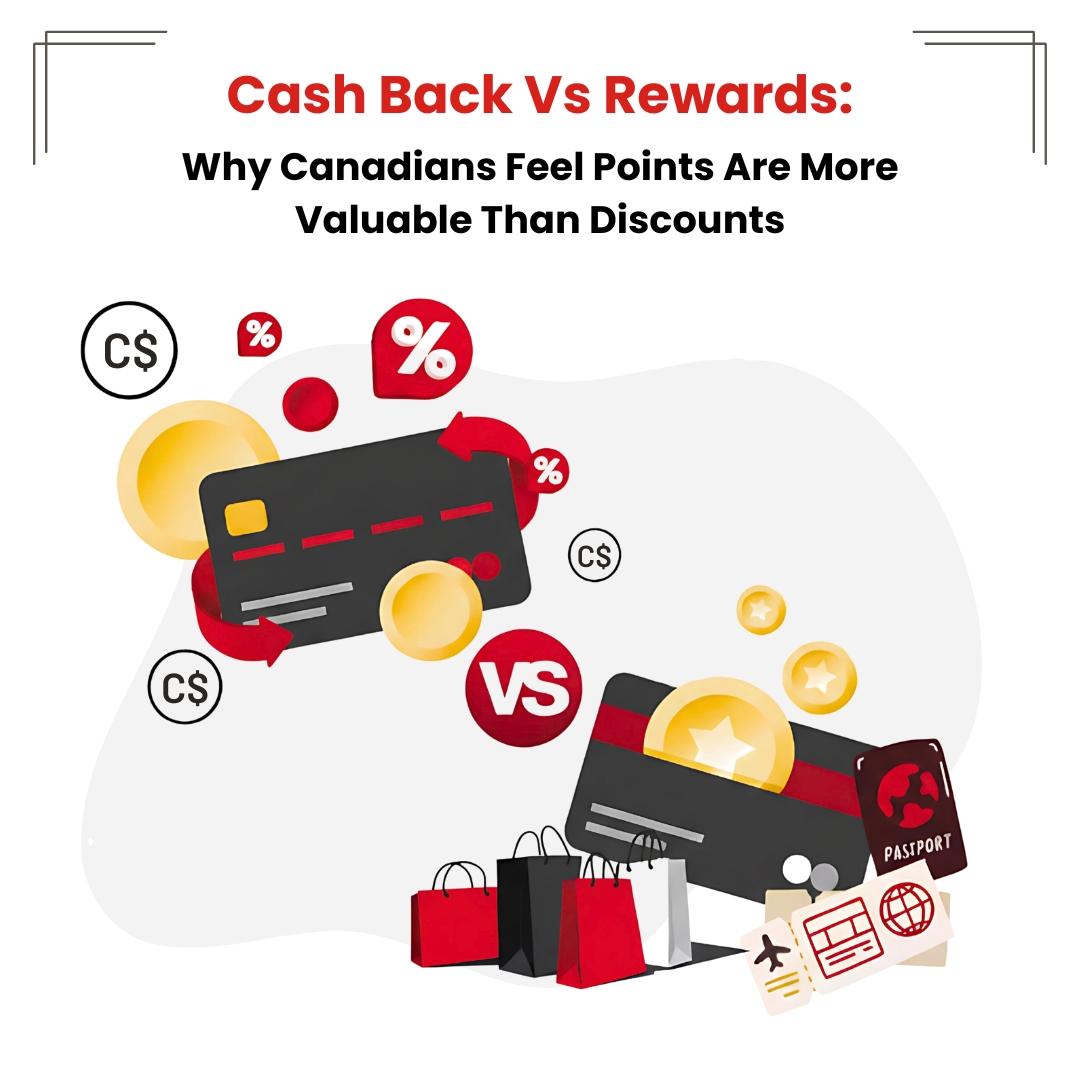Imagine walking into a store and being told you could save $5 on your purchase. Helpful? Sure. But what if you earned 500 points toward your next vacation instead? For many Canadians, the second option feels more exciting—even though the financial value might be the same.
That’s the fascinating psychology behind credit card rewards in Canada. The allure of points, miles, and cash back taps into human behaviour in ways discounts rarely do. Credit card issuers know this and design programs that make spending not only functional but also emotionally satisfying.
This blog explores why rewards feel better than discounts, how companies use this to drive behaviour, and—most importantly—how you can leverage the system responsibly.
The Science of Rewards: Why Your Brain Prefers Points
At the core of it, credit card rewards activate the brain’s dopamine pathways—the same ones triggered by achievements and small wins. Points feel like progress toward something bigger, whether it’s a flight booked with TD First Class Travel, cash earned through Tangerine Credit Card Cash Back, or a meal offset with Amex Cobalt Card.
Discounts, on the other hand, feel static. Saving $5 at the till doesn’t create the same sense of anticipation as watching your points balance grow toward a free flight or hotel night. This psychological difference explains why Canadians often choose points-based cards over straightforward discounts, even when the math favours the latter.
How Credit Card Companies Use Psychology to Encourage Spending
Card issuers are masters at blending behavioural science with marketing. Here are a few strategies you’ve likely encountered:
1. Anchoring with Welcome Bonuses
Sign-up bonuses of 50,000+ points feel like a massive reward—because they are. But psychologically, they also “anchor” you to higher spending goals. If the bonus requires $3,000 spent in three months, you’re subtly nudged to spend more than usual to hit it.
2. Gamification Through Multipliers
Earning 3X points on dining with the Amex Cobalt Card or 4% cash back on groceries with the TD Cash Back Visa makes spending feel like a game. You start choosing where and how to spend, not based solely on need but on maximizing rewards.
3. Delayed Gratification and Anticipation
Unlike discounts, rewards build over time. Watching your Aeroplan or Scene+ balance grow creates a cycle of anticipation and satisfaction. That waiting period amplifies the joy of redeeming rewards, making them more emotionally powerful.
Why Canadians Love Travel Rewards More Than Savings
While cash back is popular, travel points carry a unique thrill. Programs tied to TD First Class Travel, and the Amex Gold Credit Card make Canadians feel like everyday spending is directly funding extraordinary experiences.
It’s easier to rationalize dinner at a restaurant if you know those points could go toward a trip to Europe booked through Expedia Canada. Discounts rarely inspire the same emotional connection.
The Role of Retail Partnerships in Reward Psychology
Retailers also understand this psychology. Partnerships with platforms like AliExpress Canada, Canadian Tire Coupons, SportChek Promo Codes, and Dell Canada Coupon Codes sweeten the deal. When you earn credit card rewards on top of retail promotions, you feel like you’ve “stacked” value—a double win that drives loyalty.
This layered approach not only boosts sales for retailers but also deepens emotional ties to your card.
Generational Perspectives: How Millennials and Gen Z Engage with Rewards
Younger Canadians, particularly Millennials and Gen Z, are more likely to chase points over discounts. Why?
- Digital Savviness – They track rewards through apps and optimize spend across multiple cards.
- Experience Over Savings – Points toward travel or lifestyle rewards feel more exciting than discounts at checkout.
- Social Proof – Sharing rewards strategies online has become part of digital culture, fuelling further adoption.
The Risks: When Rewards Drive Overspending
The psychology of rewards isn’t all positive. Canadians sometimes overspend simply to chase rewards. For example:
- Buying extra electronics during a Dell Canada Coupon Code sale just to maximize points.
- Dining out more often because your Amex Cobalt Card earns 5X on restaurants.
The danger? If you don’t pay your balance in full, the interest will dwarf any rewards earned. That’s why discipline is essential.
Strategies to Leverage Rewards Responsibly
To use credit card rewards in Canada effectively without falling into traps, follow these expert-backed tips:
Focus on Fit
Pick cards that align with your natural spending. If groceries dominate your budget, a TD Cash Back Visa or Tangerine Credit Card Cash Back is smarter than a premium travel card.
Cap Your Cards
More isn’t always better. A mix of two or three cards—perhaps one travel-focused like the Amex Gold Credit Card and one everyday card like the TD Cash Back Visa—is usually enough.
Funnel for Efficiency
Direct all healthcare, dental, or therapy payments through one rewards-optimized card. For example, using Amex Cash Back ensures predictable returns on out-of-pocket medical costs.
Pay in Full
Never carry balances. The interest on premium cards like the Amex Business Platinum Card can wipe out years of rewards in a single missed payment cycle.
Why Rewards Trump Discounts in Long-Term Loyalty
Discounts are transactional, but rewards create loyalty. Canadians who collect Aeroplan miles, Scene+ points, or Amex Membership Rewards often stick with their cards for years, even decades. This emotional attachment is what makes programs so successful. You’re not just saving money—you’re “investing” in future experiences.
Conclusion: Harnessing Psychology for Your Advantage
The reason credit card rewards in Canada feel better than discounts isn’t an accident—it’s psychology at work. Points and miles play into our natural desire for progress, achievement, and future experiences.
But remember, rewards should serve you—not the other way around. With the right cards, like the Amex Gold Rewards Card, Tangerine Credit Card Cash Back, or TD First Class Travel, you can enjoy the thrill of points without falling into debt traps.
Ready to make your rewards work harder? Apply for your next card through Great Canadian Rebates and collect extra cash back today. Don’t just spend—optimize.


